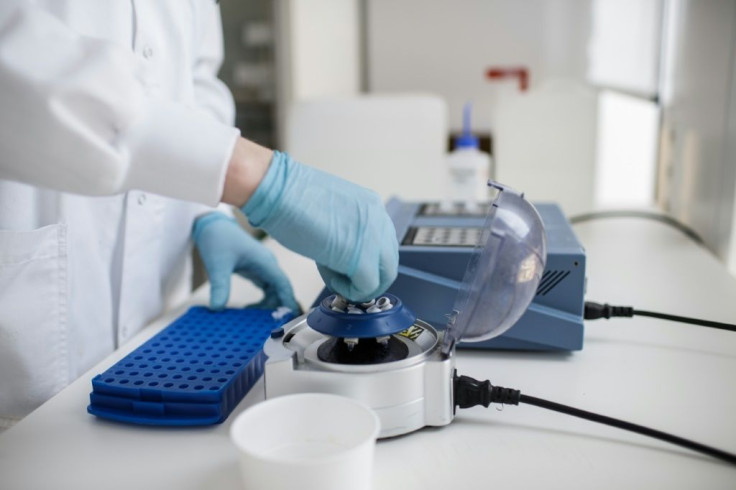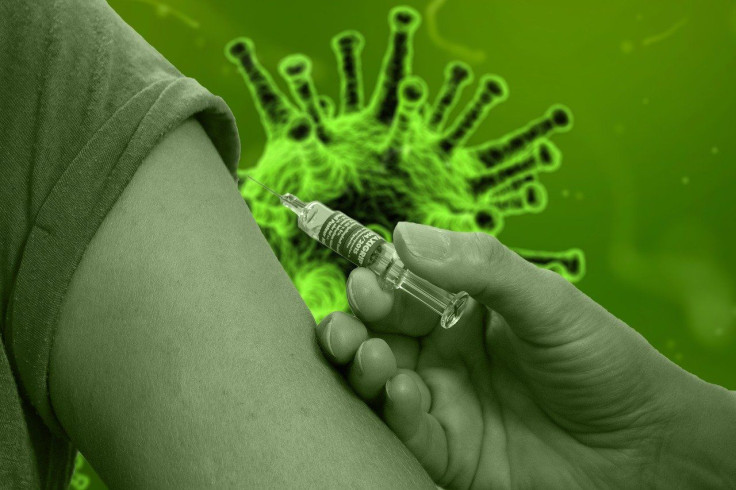Pentagon’s DARPA Plans To Create COVID-19 'Temporary Vaccine' Until Regular Vaccine Is Developed

KEY POINTS
- DARPA works on "temporary vaccine"
- Serve as "firebreak" until regular vaccine is available
- Provides immunity for several months
- Employed 2 methods to clone COVID-19 survivors' antibodies
- 1st method: use bioreactors and 2nd method: use gene-encoded antibody,
- Clinical trials might happen during summer
The Pentagon Agency’s Defense Advanced Research Projects Agency (DARPA) is working to produce an antibody treatment to fight COVID-19 until a regular vaccine is developed.
The research and funding branch of the Defense Department, known for its ingenious innovations, plans to develop a treatment that would supply the body’s immune system with the necessary antibodies to fight off the coronavirus for a temporary amount of time while waiting for a vaccine to be released.
According to Dr. Amy Jenkins, the one who leads DARPA’s Pandemic Prevention Platform (P3), the main focus is to create what they call a “temporary vaccine” that would differ from a regular vaccine in the aspect of the longevity of the vaccine’s effectiveness; while regular vaccines offer lifetime immunity, the temporary vaccine would provide immunity for several months.
Also, while regular vaccines take several weeks for the antibodies to be activated, this DARPA-developed vaccine would only take a few hours to take effect, CBS News reported.
"Unlike a regular vaccine, which creates permanent immunity, this therapy would create immunity for several months. The intention is to utilize this treatment as a bridge until a vaccine is developed." https://t.co/4qaftdie0t #DARPA #COVID19
— M. A. Fink (@onetarot) April 28, 2020
"In vaccines, you're literally teaching the body to fish, so to speak. You're teaching it how to make the antibodies that would be protective against the pathogen of interest," said Dr. Robert Carnahan, Associate Director of the Vanderbilt Vaccine Center, one of the teams working with DARPA on this project. "We're not doing that here; we're not teaching the body, what we're doing is literally jumping to the end of that, and giving them the final product which is the antibody itself. We're literally giving them the fish."
Dr. Jenkins also emphasized that this treatment would not take the place of a regular vaccine, but rather, as a means to buy more time and to provide protection especially for the high-risk population such as the frontline workers and first responders to COVID-19 hotspots.
"We're trying to put the ring around the people who are the most affected by this to stop the potential future spread of it," Dr. Jenkins told CBS News.
The P3 is a program launched in 2018 that works with outside researchers to develop a rapid response to new emerging infectious diseases with a goal to provide medical countermeasures within 60 days.
The program is now working with two universities, Duke and Vanderbilt and two pharmaceutical companies, AbCellera and AstraZeneca, to formulate a response against current pandemic.
The P3 researchers used the blood from recovered COVID-19 patients, including that of Washington One, the first reported coronavirus patient in the U.S. and sorted out the top three most potent antibodies among the thousands produced, which would have the greatest capability to fight off the coronavirus.
According to Dr. Jenkins, the process of sorting out those antibodies alone would take several years if this was done five years ago but with current technology that DARPA has invested on, the process would only take about a few weeks.
Once the antibodies are identified, they could undergo two processes to manufacture them.
The first procedure, which Dr. Jenkins said would begin in a few weeks, is the traditional method of replicating these antibodies in large amounts for widespread distribution.
AbCellera, in partnership with Eli Lilly, and AstraZeneca would manufacture these antibodies in giant steel tanks called bioreactors and the products would be purified, tested and injected into patients for temporary immunization.
The manufacturing process would normally take several years but DARPA is aiming for a more rapid turnaround time and Dr. Jenkins said that even if the process would take 90 to 120 days to accomplish, it would still be revolutionary feat in the field.
DARPA also looked into an alternative method and invested in technology that would allow them to turn the patients’ own bodies into bioreactors.
The second procedure, according to Dr. Carnahan, would involve the researchers extracting the antibodies’ genetic code, replicate them and inject the material into the patients so that they can produce the antibodies themselves.
Dr. Carnahan explained that this procedure is like introducing a blueprint of the immunization to the body so that the cells can take up this raw material and produce the necessary antibodies on their own.
The P3 researchers are working on these two procedures, the bioreactors and the gene-encoded antibody, simultaneously so that they work on having clinical trials this summer and to distribute the treatments either this fall or early 2021.
With experts warning against a second wave of the outbreak, the DARPA team is racing against the clock to accomplish this project as soon as possible.
"We had a little bit of a leg up in that this is quite similar to SARS, at least from a structural standpoint. It looks a lot like SARS,” Dr. Jenkins said. “It’s sequence is somewhat similar to SARS and that did allow us to move a little bit faster on some of the things that we needed to get this in place. But the goal of our program here actually is to be able to respond this quickly, no matter what the threat."

© Copyright IBTimes 2025. All rights reserved.





















